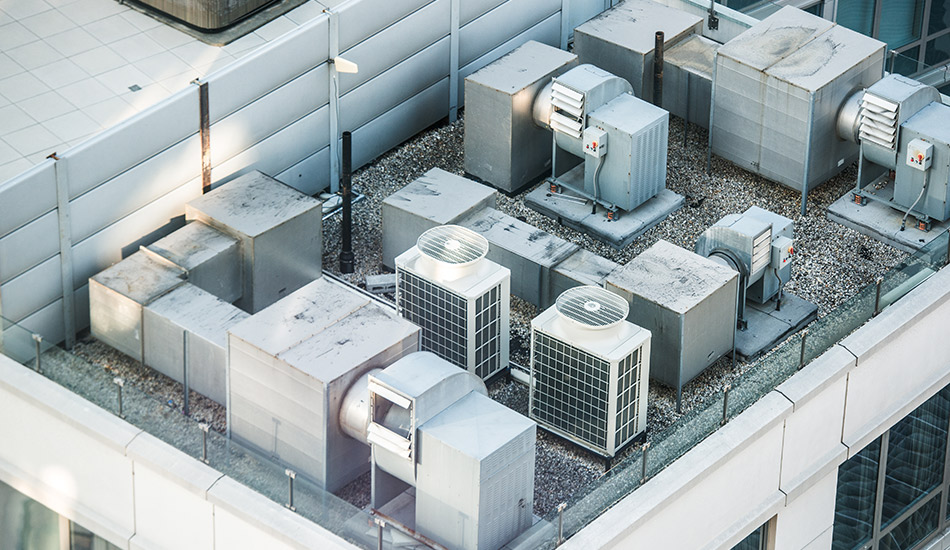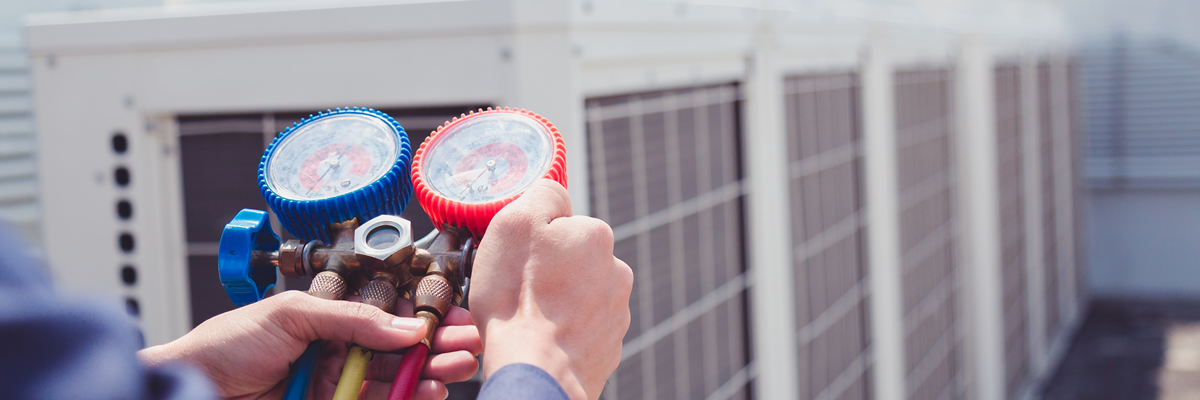Everything You Should Check During heat pump service
Everything You Should Check During heat pump service
Blog Article
Picking Between a Heatpump and Heater: Secret Factors To Consider for Your Cooling And Heating Demands
When reviewing heating options for cooling and heating requires, the decision between a warmth pump and a heater can be complicated. Each system provides distinctive advantages customized to specific climates and power performance goals. Comprehending these distinctions is vital for making an enlightened selection. Trick aspects such as setup expenses and ecological effect further complicate the choice procedure. Which choice truly lines up with one's convenience and sustainability choices? The adhering to areas will check out these considerations thoroughly.
Understanding Warmth Pumps: Exactly How They Function and Their Advantages
While several homeowners think about various home heating alternatives, comprehending how heatpump feature and their advantages can significantly affect their decision. Heatpump operate by transferring warm as opposed to creating it. In the winter months, they remove warm from the outside air or ground and transfer it inside, while in the summertime, they reverse this process, cooling the home by getting rid of heat outside. This dual functionality makes them versatile for year-round environment control.One of the primary advantages of heat pumps is their energy efficiency. They utilize significantly much less electrical energy compared to traditional heating unit, potentially causing lower energy bills (heat pump installation ooltewah tn). Additionally, warm pumps have a smaller carbon footprint, making them an environmentally pleasant choice. They additionally require much less maintenance than conventional systems, adding to lasting expense financial savings. Overall, comprehending the technicians and benefits of warm pumps can help home owners make educated choices concerning their home heating and cooling down requirements
Checking Out Furnaces: Types, Operation, and Advantages
Heating systems come in various kinds, consisting of gas, electrical, and oil versions, each with unique operational devices. Recognizing these differences is necessary, as they affect effectiveness and home heating efficiency. In addition, heaters supply numerous advantages, such as constant heat outcome and dependability in cooler climates.
Kinds of Furnaces
Heater can vary significantly in style and procedure, with heaters being a popular selection among house owners. There are several sorts of heating systems, each utilizing different fuel resources and modern technologies. Gas heaters are typical, leveraging gas to produce warm successfully. Electric heating systems, on the other hand, utilize electrical resistance to produce heat, typically preferred for their uncomplicated installation. Oil heaters, while much less common, work in areas with restricted gas access (heat pump service). Furthermore, condensing heating systems take full advantage of energy efficiency by recycling and capturing exhaust gases. Each type runs through a system of warm exchangers and ductwork to distribute cozy air throughout a home. Recognizing the differences between these heater kinds is necessary for notified HVAC decisions
Advantages of Heaters
For homeowners looking for trusted heat throughout cold months, the benefits of heating systems are substantial. Heaters supply constant home heating, ensuring even temperatures throughout the home. They are especially reliable in severe chilly, often exceeding warm pumps in icy problems. Various types, consisting of gas, electric, and oil furnaces, supply versatility to satisfy varied requirements and preferences.Furnaces additionally often tend to have lower initial installment expenses compared to heatpump, making them a much more easily accessible choice for numerous. Their durable layout contributes to a longer life-span, with lots of systems lasting over 15 years with proper maintenance. Additionally, contemporary heaters are often outfitted with sophisticated technology for boosted effectiveness, which can bring about lowered energy expenses. Overall, heating systems remain a reliable choice for efficient home heating.

Power Efficiency: Contrasting Heat Pumps and Furnaces
When comparing energy effectiveness in between heatpump and heaters, the Seasonal Energy Efficiency Proportion (SEER) plays a vital duty in identifying efficiency. Furthermore, a functional expense evaluation reveals the lasting economic ramifications of each system. Comprehending these aspects can guide property owners in making informed decisions regarding their heating solutions.
Seasonal Power Efficiency Ratio
Power efficiency plays an essential function in the decision-making process in between warmth pumps and heaters, especially when thinking about the Seasonal Energy Performance Proportion (SEER) This statistics procedures the cooling performance of warmth pumps over a whole cooling season, providing a standard method to assess efficiency. Greater SEER ratings indicate better energy efficiency, converting to lower energy intake and lowered utility bills. On the other hand, furnaces are generally assessed utilizing the Annual Fuel Usage Efficiency (AFUE) ranking, which shows heating performance. When contrasting these two systems, property owners need to prioritize SEER ratings for heatpump, as they straight effect total energy cost savings and environmental sustainability. A thorough understanding of SEER can notably affect the lasting satisfaction and cost-effectiveness of the chosen cooling and heating solution.
Functional Cost Analysis
Comprehending the functional prices connected with heatpump and furnaces is crucial for homeowners examining their options. Warmth pumps commonly use greater energy effectiveness, converting electrical energy right into warm with minimal waste. This leads to reduced month-to-month energy bills, specifically in moderate environments. On the other hand, traditional heating systems, specifically gas versions, may have reduced ahead of time costs however can incur greater functional costs with time as a result of fuel rates and efficiency ratings.Moreover, warmth pumps can operate as both home heating and cooling systems, possibly decreasing the requirement for separate a/c devices. While preliminary financial investments for heatpump may be higher, their lasting savings in energy performance can make them a much more economical choice for many households. Careful analysis of regional power prices is necessary to identify the most effective choice.
Installment Costs: What to Expect for Each Heater
Setup costs for furnace can differ significantly in between heat pumps and heaters, affecting homeowners' choices. Warm pumps typically have greater ahead of time setup expenses, generally ranging from $3,500 to $8,000, depending on the device size and intricacy of installment. This includes the outdoor unit, interior handling system, and required ductwork modifications. On the other hand, furnaces tend to have lower initial prices, averaging between $2,500 and $6,000, which can be appealing for budget-conscious home owners. However, installation costs can raise if extensive ductwork is required.Moreover, the option of gas type for furnaces-- all-natural gas, gas, or electric-- can additionally affect setup expenses. While warm pumps use power efficiency, their preliminary financial investment may discourage some purchasers. Ultimately, evaluating setup expenses together with long-term cost savings and performance will help house owners in making informed decisions concerning their furnace.
Climate Considerations: Which System Executes Better in Your Location
Exactly how do environment problems influence the effectiveness of heating unit? The efficiency of warmth pumps and heaters can vary greatly depending upon the regional environment. In moderate environments, warmth pumps succeed by effectively moving warmth from the outdoors air, making them an energy-saving alternative. However, their effectiveness lessens in very chilly temperature levels, where they might have a hard time to remove enough heat. Alternatively, heating systems, specifically gas versions, offer trustworthy and regular heat no matter exterior problems, making them more suitable in cooler regions.In areas that experience milder winters, warmth pumps can run effectively year-round, offering both heating & cooling. In contrast, areas with harsh winter seasons often benefit from the toughness of furnaces. Ultimately, comprehending the local climate is vital when deciding between a heatpump and a heating system, as it directly influences their functional efficiency and total performance.
Upkeep Demands: Long-Term Care for Heat Pumps vs. Furnaces
While both warm pumps and heating systems require routine maintenance to assure peak efficiency, their specific needs and care regimens differ significantly. Furnaces generally require much less frequent interest, with annual examinations being adequate to examine for gas leakages, clean filters, and examine total functionality. Their less complex style commonly enables uncomplicated repairs.In contrast, warm pumps necessitate semiannual maintenance because of their double role in cooling and heating. This includes cleaning coils, examining cooling agent levels, and making certain that both the interior and outdoor devices function at their finest. Additionally, heat pump maintenance commonly involves even more intricate components, making professional servicing essential.Neglecting maintenance can result in lessened efficiency and raised power prices for both visit site systems. Ultimately, property owners need to think about these long-lasting care demands when choosing in between a heatpump and a heating system, as proactive maintenance can extend the lifespan and performance of either system substantially.
Environmental Effect: Choosing a Sustainable Heating Option
The environmental impact of heating unit is a vital evaluation for home owners looking for sustainable alternatives. Heat pumps are usually more energy-efficient than typical heaters, as they move warmth rather than produce it, significantly minimizing carbon exhausts. By making use of renewable resource sources, such as air-source or geothermal heatpump, homeowners can further reduce their environmental footprint.On the various other hand, gas heating systems send out greenhouse gases and add to air contamination, though they commonly give higher warm output. Developments in technology have led to the advancement of high-efficiency furnaces that lessen emissions.Ultimately, choosing a home heating system entails considering effectiveness against ecological effect. Home owners are motivated to review neighborhood energy resources and motivations for sustainable systems, making certain an option that lines up with both personal comfort and ecological duty. The choice affects not just immediate comfort but also long-term sustainability and environmental health and wellness.
Often Asked Inquiries
The Length Of Time Do Heat Pumps and Furnaces Typically Last?
The life-span of heatpump usually ranges from 15 to two decades, while furnaces can last between 15 to three decades. Normal maintenance significantly impacts their long life and effectiveness in supplying heating services.
Can I Utilize a Heatpump in Exceptionally Cold Climates?
Warm pumps can operate in extremely cold climates, however their efficiency see this here lessens as temperatures decline. In such problems, supplementary heating resources might be required to keep comfortable indoor temperature levels and assure peak efficiency.

What Is the Sound Degree of Heat Pumps Versus Furnaces?
The noise degrees of warm pumps and heaters vary substantially. Normally, heatpump run more quietly Full Report than conventional heaters, making them more effective for those delicate to appear, while heating systems might create louder functional noises throughout heating cycles.
Are Warm Pumps Suitable for Both Cooling And Heating?
Heatpump are indeed suitable for both home heating and cooling (furnace replacement). They function by moving warmth, giving reliable temperature level control year-round, making them a functional option for property owners seeking an all-in-one heating and cooling option
What Dimension Home Heating System Do I Required for My Home?
Figuring out the ideal size home heating system for a home calls for evaluating elements such as square video, insulation quality, local environment, and the home's design. Consulting a professional can assure a precise evaluation and optimal comfort. Heat pumps usually supply higher power performance, transforming electrical energy right into warm with very little waste. In modest environments, heat pumps excel by efficiently transferring warmth from the outdoors air, making them an energy-saving alternative. On the other hand, furnaces, particularly gas models, supply constant and dependable warmth regardless of exterior conditions, making them more suitable in colder regions.In areas that experience milder winters, warm pumps can operate properly year-round, providing both home heating and cooling. Warm pumps are typically more energy-efficient than conventional heating systems, as they move warm instead than produce it, considerably minimizing carbon discharges. By making use of sustainable energy resources, such as air-source or geothermal warm pumps, house owners can additionally minimize their ecological footprint.On the various other hand, natural gas furnaces discharge greenhouse gases and contribute to air pollution, though they usually give greater warmth outcome.
Report this page